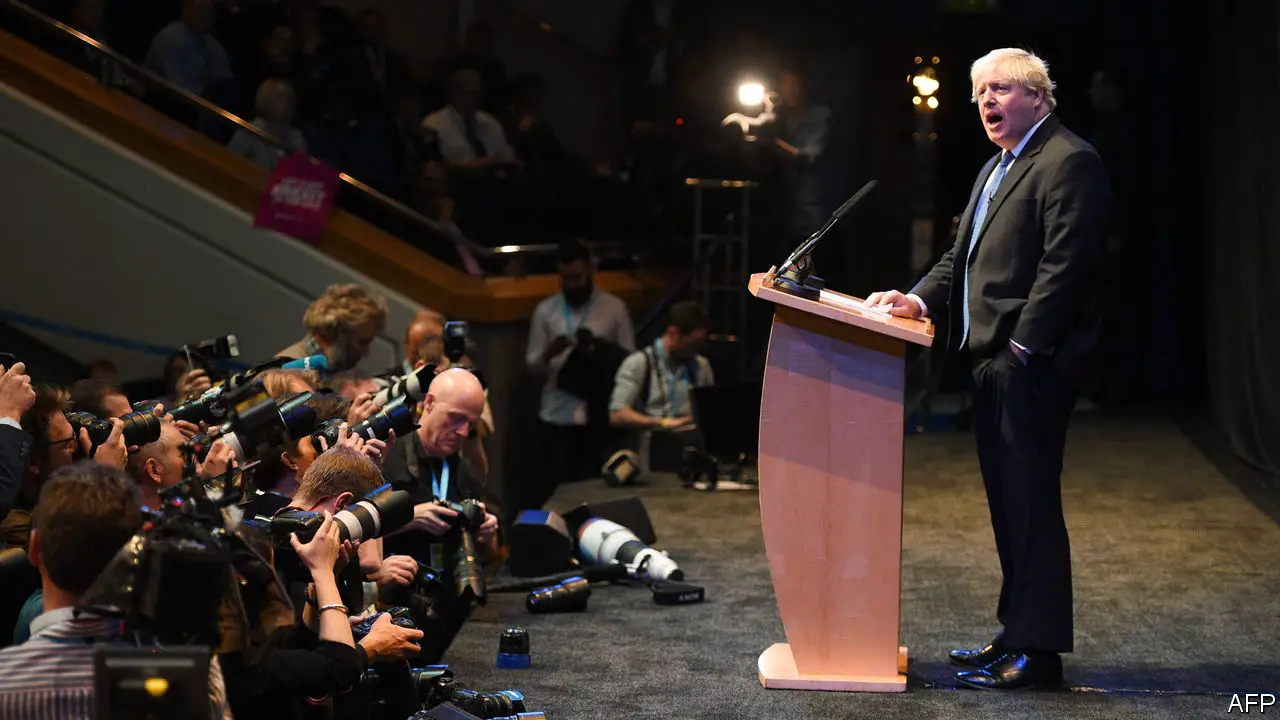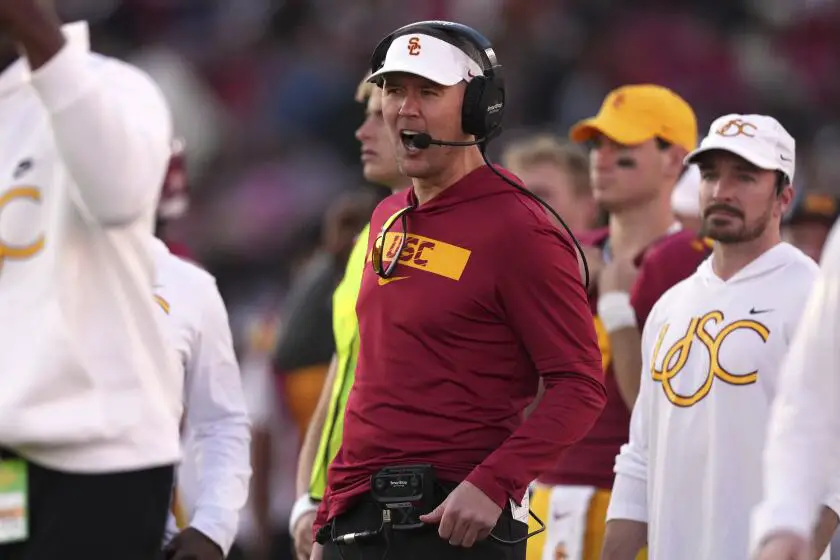
By BAGEHOT
TODAY’S Conservative Party conference is all about one person: Boris Johnson. Mr Johnson booked the largest room in the conference centre, with enough space for 700, but people nevertheless started queuing three hours early. He came flanked by a bigger entourage of security guards and minders than he ever commanded as foreign secretary.
The journalists were as fevered as many of the delegates and began queuing just as early. The tabloids rejoiced in the fact that Mr Johnson had trolled the prime minister by jogging through a field of wheat near his Oxfordshire home (Ms May once remarked that the naughtiest thing she had done as a child was to run through a wheat field). The Sun revealed that Mr Johnson had talked to “senior Tories” about making a leadership bid and said that, if he were to do so, he’d delay Brexit for at least six months in order to restart negotiations. Mr Johnson laid out nothing less than an alternative manifesto for the future of the Conservative Party.
Bagehot would like to add two notes of caution to this fevered speculation.
The first is that the size of the audience (and patience of the queue) should not be taken as proof of Mr Johnson’s popularity. Some of the people in the queue were certainly die-hard Boris fans: asked if this was the beginning of a leadership bid one woman replied: “I bloody well hope so.” And the majority certainly shared his worries about the Chequers plan for Brexit, which proposes staying in the EU’s single market for goods. But most of the people Bagehot approached were not there to lend support to the leader over the water. Some said that having heard what the leadership had to say they wanted to “listen to the other side”. Some said that they wanted to hear him lay out some details of his Europe-plus plans. But most were there for the pure entertainment. The official conference is as dull as ditchwater: wooden speeches by politicians and hokey testimonials from “ordinary people” about how this or that government scheme had helped them out. Mr Johnson, by contrast, is always entertaining. The former foreign secretary also demonstrated his talent for political drama by turning up for just one event—his set speech—and then departing.
The second is that Mr Johnson’s star turn is not necessarily the beginning of a leadership bid. There is no doubt that Mr Johnson is desperate to become leader of his party: in some ways he’s been running for the top job since he was in the cradle (his father, Stanley, was miffed about not being selected for a Tory seat and raised his large family to be high achievers). In his speech today he set out what looked suspiciously like an alternative manifesto, with suggestions for economic and housing policy as well as Brexit. There is also no doubt that the existing party bosses regard him as a serious threat. Theresa May has gone out of her way to say that he’s “not a serious” person. Philip Hammond, the chancellor, even imitated Mr Johnson’s Bertie Woosterish manner in an interview with the Mail on Sunday.
The arguments for or against Mr Johnson making a leadership bid are evenly balanced. The argument in favour is that he’s so much the face of Brexit that it’s now or never. Mrs May will be at her most vulnerable when she tries to get the Chequers agreement through parliament in November or December, with both hard-core Brexiteers and Labour MPs promising to vote against her and the possibility of a complete paralysis in parliament looming.
The argument against is that the obstacles are too high. Opinion polls conducted by Conservative Home, a website, suggest that Mr Johnson is the favourite among grass-roots members to lead the party. But would his numbers hold up if he mounted a leadership bid at such a delicate time in the Brexit negotiations? The majority of people Bagehot interviewed in the Boris queue thought that a leadership bid would be an unforgivable exercise in vanity and disloyalty. Tory MPs also have a very low opinion of the member for Uxbridge and South Ruislip. The leadership rules dictate that Tory MPs should produce a shortlist of two before the members make the final decision. Many MPs would move heaven and earth to make sure that Mr Johnson is not on that list—particularly if he launches a leadership bid in the middle of epoch-making negotiations with Brussels. Mr Johnson was forced to withdraw his name from the last leadership contest because he couldn’t get enough support; it seems unlikely that he’s acquired more since then, given his disastrous performance as foreign secretary and his habit of describing his own party’s Brexit policy as not just mistaken but “deranged”.
The performance was certainly a great spectacle. He did a good job of bashing Jeremy Corbyn’s Labour Party—a “Tony Benn tribute band”—and its willingness to apologise for the Kremlin, Hugo Chávez and anti-Semitism. He offered an excellent riff on his achievements as mayor of London. He bashed former colleagues such as Michael Gove, the environment secretary, who think that the most important thing to do is to get out of the European Union even if you do not like the terms. He won huge applause for denouncing Chequers as a betrayal of the referendum result. “My fellow Conservatives,” he said. “This is not democracy. This is not what we voted for. It is a constitutional outrage.” He demonstrated, in short, that he possesses the sort of star power that can shift the political dial in a crisis.
But he didn’t go beyond fiery rhetoric to offering practical details about his Canada-plus proposals (for example he didn’t address the fact that Canada took seven years to negotiate its free-trade deal with the EU). Nor did he give an answer to the question of which side of the argument for or against making a leadership bid he is on. This was the speech of a fence-sitter rather than a man who has decided that now is the time to strike.
It’s probably a mistake to read too much into Mr Johnson’s star turn in Birmingham today. He wants to keep his name in the mix for any leadership race. He certainly wants to pull the government away from Chequers and towards some sort of free-trade deal with the EU, modelled on Canada’s. He enjoys throwing rhetorical hand-grenades. But Mr Johnson is much more of a showman than a strategic thinker. The main reason why he’s addressing the Tory conference today is that he craves the limelight—and he gets a lot more limelight now that he’s out of government than he ever did when he was in it.








